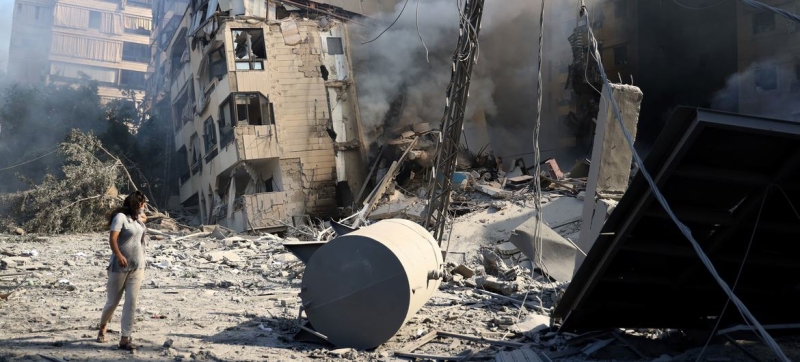
Destruction in Beirut’s southern suburbs. UN urges to prevent Lebanon from becoming ‘another Gaza’ Peace and Security
Humanitarian agencies in Lebanon face the near-impossible task of trying to help 1.2 million people who have fled their homes because of Israeli bombing and evacuation orders, fearing they will suffer the same fate as Gaza residents, UN agencies said Tuesday.
“The country is not prepared [for a new crisis] because of all the problems it has faced in recent years. So it will be very difficult,” said Matthew Hollingworth, director of the World Food Programme (WFP) in Lebanon.
About a week ago, the UN launched an appeal for $426 million to help the country’s victims, and so far just over 12 percent of that amount, or $51.4 million, has been provided.
Turned into ruins
Hollingworth described cases where residents were given just hours’ notice of forced evacuations before a planned bombing, but said families who had already been displaced in the past year were far better prepared than most Lebanese who have fled in recent weeks.
As Israel bombed Beirut and southern Lebanon in the wake of the Gaza war, areas in the south of the country and the southern suburbs of Beirut have been deserted, a WFP spokesman said. “Many of these cities, villages and suburbs have been reduced to rubble,” he added.
The Highest Price
Following the COVID-19 pandemic and the devastating explosion at the port of Beirut in 2020, poverty in Lebanon has risen sharply amid a protracted political crisis. At the same time, the country is hosting more than a million Syrian refugees.
Read also:
Escalation in Lebanon: Shelling, Uncertainty and Fear
Jeremy Lawrence, a spokesman for the UN Human Rights Office (OHCHR), said civilians were continuing to pay “the highest price, whether it’s hospital closures, the displacement of a million people, the deaths of civilians, the destruction of schools.” “The scale of destruction in Gaza is enormous. We cannot allow that to happen again in Lebanon,” he said.
Overcrowded Shelters
According to WFP, more than 200,000 people are currently sheltering in 973 official shelters in Beirut and northern Lebanon. Some 773 of the shelters are overcrowded, Hollingworth said. He added that people had lost not only their homes but also “family, friends and communities” and that “the future is frightening.”
Meanwhile, rocket fire from Hezbollah into Haifa in northern Israel reportedly resumed on Tuesday. The armed group has been shelling northern Israel since the start of the Gaza war, forcing tens of thousands of Israelis to flee their homes.
Healthcare under threat
Since September 16, 17 attacks on the health system and its workers have killed 65 people and injured 42, according to the World Health Organization (WHO).
More than 96 health facilities in southern Lebanon have been forced to close. Five hospitals are currently closed “due to physical or infrastructural damage,” WHO spokesman Ian Clarke said.
Speaking via video link from Beirut, he said four more hospitals had been partially evacuated and were providing emergency care only, with patients needing dialysis and cancer services being referred to other facilities.
No harvest
The UN has insisted on the need to keep land, air and sea access to Lebanon open, as the country relies on imported essential supplies.
A total of 1,900 hectares of agricultural land has been reported burned in the south of the country over the past year, “mostly in the last few weeks,” Hollingworth said. In addition, 12,000 hectares of agricultural land in one of the most productive areas of the country were abandoned, and about 46,000 farmers suffered because of the situation. “There will be no olive, banana or citrus harvest in the south,” the WFP representative noted.
